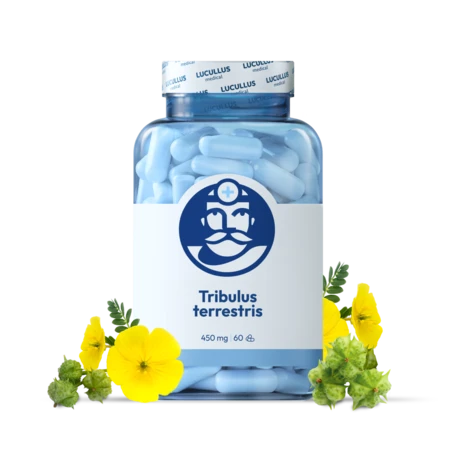
Vitamin C - is it just a placebo?
Vitamin C is probably the most well-known and commonly used vitamin. From childhood, our mothers give us effervescent Celaskon in winter to protect us from colds and the flu. And even though recent studies may cast doubt on this, as there is no study that directly confirms that vitamin C protects against the flu and colds, there are facts that cannot be denied.

Sailors once often fell ill with scurvy on long voyages. Their gums bled, teeth fell out, and wounds healed slowly. Due to monotonous and poor diets (salted meat and hard bread), they lacked important substances, especially vitamin C. It’s mainly found in fruits (currants, rose hips, kiwis, citrus fruits...) but also in some vegetables: cauliflower, peppers, cabbage, potatoes. And it was potatoes that became the savior of the sailors. They last long, contain vitamin C, and were easy to transport on ships. It’s amusing now, but the first synthesized (manufactured) vitamin C didn’t start selling until 1934.
An interesting fact is that all animals and plants (with only a few exceptions) can synthesize their own vitamin C (e.g., a common domestic goat can produce up to 14g per day). Humans, however, cannot and need to obtain vitamin C from external sources. Today, with plenty of available food, vitamin C deficiency should not be a concern for anyone. However, it is still purchased and consumed in increased amounts for many good reasons.
Vitamin C (ascorbic acid) is very important for regulating metabolism, promotes iron absorption, maintains vascular integrity, stimulates the production of white blood cells, supports the development of bones, teeth, and cartilage, and promotes growth... No wonder our mothers gave it to us generously, especially in our youth. Furthermore, even if they overdid it, you can’t overdose on it, as the excess is excreted in urine. One of the few negative effects is the potential clogging of arteries if they are too narrow (as Vitamin C strengthens their walls). In such cases, reduce your daily intake from the recommended 90/75mg to 40mg.
There are miraculous stories about the effects of vitamin C, even in cancer treatment. There are over 2200 studies examining its effects. Although doctors consider its benefits in cancer treatment a myth, the truth is that vitamin C is indeed used in oncology for certain forms. Probably the most famous story is that of American physicist and chemist Linus Pauling. In 1954, he received the Nobel Prize for his research into the chemical bond. In 1962, he received the Nobel Peace Prize (for protesting against nuclear tests), collaborated with Oppenheimer, although as a pacifist refused to work on the atomic bomb, and instead joined its opponents, together with Einstein. Why are we talking about him? He became a promoter of high doses of vitamin C.

Biochemist Irwin Stone published the concept of megadoses of vitamin C (several grams each day) in 1966 to prevent colds. Pauling subsequently began collaborating with British oncologist Ewan Cameron, and they co-authored many books (e.g., Cancer and Vitamin C), promoting the administration of large doses of vitamin C intravenously. He himself took 3g daily, and up to 18g in later years! In 1973, he co-founded the Linus Pauling Institute, focusing on the research into the effects of vitamin C. Despite vast lifelong achievements and two Nobel Prizes, he was labeled a charlatan and fraudster in vitamin C research, and many references to his work have been erased from the internet.
Let's leave conspiracy theories aside, the recommended daily intake of vitamin C is 90mg for men and 75mg for women. There are many reputable sellers where you can buy quality Vitamin C in safe capsules.






